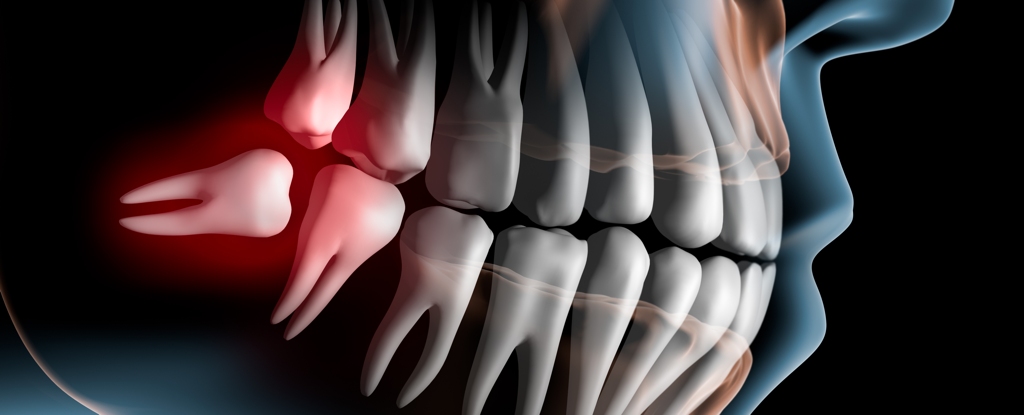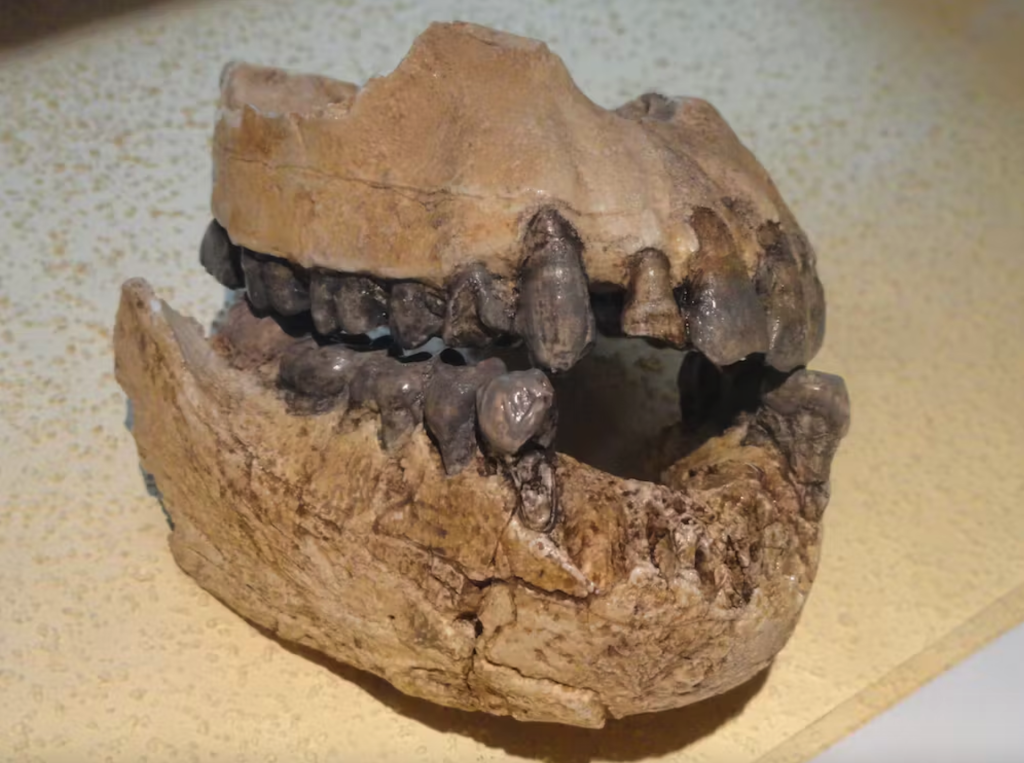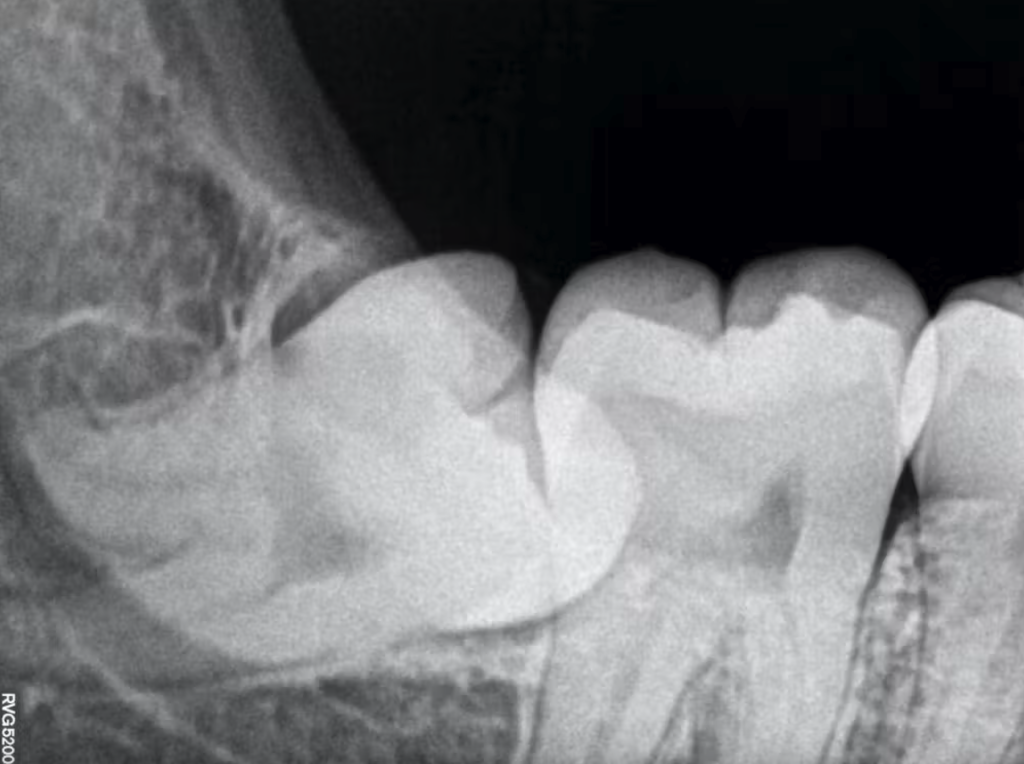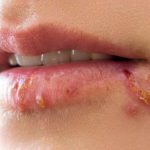
Wisdom teeth, also known as third molars, are positioned at the rear of the mouth. While resembling the first and second molars, they may be slightly smaller in size.
Referred to as wisdom teeth, they earn their name as the final set of 32 permanent teeth to surface, typically emerging between the ages of 17 and 25, a period associated with increased wisdom and maturity.
You may be aware that not everyone develops all four wisdom teeth. Additionally, many individuals undergo the removal of these molars. This raises a valid question – why do humans possess them?
We research teeth and can explain that the answer is deeply rooted in the distant past – and also has relevance to the present day.
More powerful jaws
Similar to how you share common features with your relatives, humans share features with their extended family – the primates. Monkeys, gorillas, and chimpanzees all possess wisdom teeth.
Several million years ago, early human ancestors boasted larger jaws and teeth compared to contemporary humans. One such species, Australopithecus afarensis, commonly known as Lucy’s species, inhabited the Earth around 3 to 4 million years ago, as evidenced by the remains of the renowned fossil specimen, Lucy.

The jaw and teeth of an individual belonging to Australopithecus afarensis were considerably larger and thicker than those of contemporary humans. These early humans featured three large molar teeth with robust enamel. Fossilized skulls of these ancient humans also reveal indications of robust chewing muscles.
Changes in diet
Researchers believe that early human ancestors required more robust jaws and teeth due to the challenging nature of the foods they consumed, such as raw meat and plants, which were harder to chew compared to contemporary diets.
Scientists examine factors like marks and microscopic wear patterns on fossilized teeth to deduce the likely diet of extinct ancestors.
Modern food is considerably softer than in the past, influenced by factors such as agriculture, cooking, and food storage. The ease of chewing softer food places less demand on teeth.
Consequently, the jaws of modern humans have adapted to be smaller and face flatter compared to our extinct ancestors. This change is a response to the fact that our current diet doesn’t necessitate the large, sharp teeth required by our predecessors.
Considering these gradual changes occurring over millions of years, the third molars, commonly known as wisdom teeth, may not hold the same significance today as they did in the past.
Missing wisdom teeth
Approximately 25% of individuals today lack at least one wisdom tooth entirely, indicating that it never developed. While the absence of certain teeth does occur occasionally, it’s far more prevalent with wisdom teeth.
Scientists are uncertain about the exact reasons for this phenomenon, but it might be linked to the genes inherited from parents. Some researchers argue that the absence of wisdom teeth is advantageous for modern humans with smaller jaws. It’s undoubtedly more convenient to accommodate fewer teeth in a smaller jaw.
Sometimes, owing to limited space, wisdom teeth may become trapped within the jawbone, failing to fully emerge—or they might only partially surface.

A quarter of people today lack at least one wisdom tooth, indicating it never formed. While some individuals may not develop other teeth, the absence of wisdom teeth is more prevalent.
Wisdom teeth typically do not require extraction when they are fully immersed in the mouth, correctly positioned, and in good health.
Dentists can assess the presence of your wisdom teeth by examining your mouth, or they may utilize X-ray images of your jaw if these final molars have not yet surfaced and there are concerns about impaction.
Dentists can guide whether any treatment or removal is advisable for your wisdom teeth. In the meantime, maintaining good oral hygiene by brushing at least twice a day and flossing daily will contribute to the overall health of your teeth.
This article has been reprinted from The Conversation under a Creative Commons license.





